Tariffs, Deals, Steel, Aluminum and AI – Oh My! Welcome to the New Normal
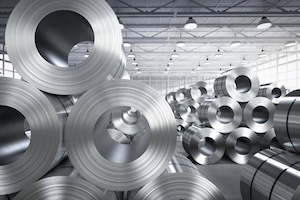
New tariffs, changed tariffs, and reduced tariffs are announced with short notice. The duties on merchandise can change while a shipment is in the middle of the ocean. The status of free trade agreements has become uncertain. New detailed duties are assessed on steel and aluminum and their derivatives. Artificial intelligence is playing an increasing role.
Critical Minerals Focus of White House Trade Agreements in 2025

The Trump Administration is pursuing a new style of trade management based on use of tariffs to rectify trade deficits and to set new “reciprocal” tariff rates to level the playing field for all of its trading partners. Critical minerals are a key component of the strategy, because the U.S. is heavily dependent of foreign sources for most of the critical minerals used in modern manufacturing. In response to Trump-imposed tariffs and threats of other trade actions, China has repeatedly used export controls on rare earths and other critical minerals as leverage. This article looks at the current state of critical minerals trade actions, starting with new US agreements with multiple trading partners, then reviewing international norms and proceeding through other trade actions involving critical minerals.
BIS “Affiliates Rule” Suspended One Year, But No Time to Rest
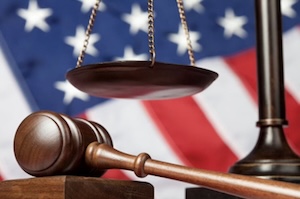
On November 10, 2025, the U.S. Bureau of Industry and Security (“BIS”) delayed the effective date of its new Affiliates Rule for a one-year period, until November 9, 2026, after U.S. and China trade talks. The Affiliates Rule, announced on September 29, 2025, expands export controls under the Export Administration Regulations (“EAR”) to extend to non-listed “affiliates” owned or controlled by listed entities (on the Entity List, the Military End User List “MEU”, or certain sanctioned parties) 50% or more in the aggregate.
Section 232 Steel & Aluminum Derivative Products Inclusion Process Expands Scope of the National Security Purpose of Section 232 Investigations
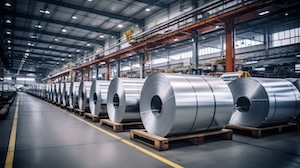
On February 10, 2025, the President issued Presidential Proclamations Under Section 232 of the U.S. Code adjusting imports of steel and aluminum into the United States. These Proclamations provided an expanded listing of steel and aluminum derivative articles but also instructed the Secretary of Commerce (Secretary) to establish a process for including additional derivative aluminum and steel articles within the scope of the ad valorem duties.
The Automotive Industry, China’s Semi Grip on Supply Chains, and General Motors 2027 Exit Strategy for Suppliers (Is a clean break even possible?)

General Motors (GM) has instructed thousands of its suppliers to phase out sourcing parts and materials from China by 2027. The exit strategy began in early 2024, with the directive gaining momentum in spring of this year, 2025. This directive is part of GM’s broader strategy to enhance supply chain resiliency and reduce exposure to geopolitical risks, particularly amid escalating, or let’s just say, continuously fluctuating, U.S.–China trade tensions.
Hot Topics in International Trade. Bob Brewer, VP Marketing/NBD sits down with Managing Partner Adrienne Braumiller, Braumiller Law Group to discuss IEEPA tariff refunds, or not
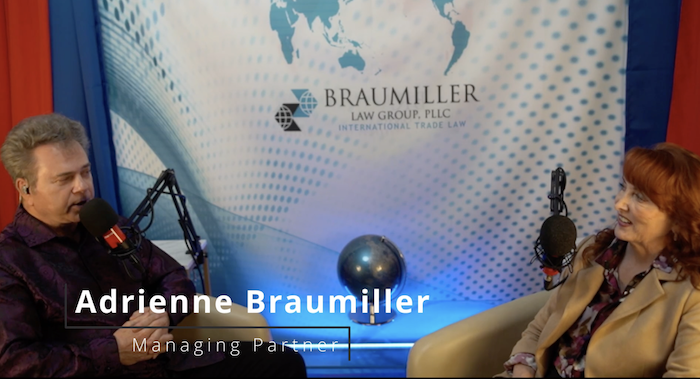
Hot Topics in International Trade. Bob Brewer, VP Marketing/NBD sits down with Managing Partner Adrienne Braumiller, Braumiller Law Group to discuss IEEPA tariff refunds, or not.
Hot Topics in International Trade A Tariff Christmas Message for US Kids

Hey kids in the US please pay attention and beware. Yes, Santa is still coming but regarding this you should care. Due to the import tariffs on Chinese products his sack will be lighter but don’t blame Santa, the Christmas funds had to get tighter. He’ll still bring some gifts from your long Christmas list but some of those gift had still and aluminum parts so they got 50% hits. Please understand there is a trade war going on and our relationship with China isn’t that strong so just suck it up and feel blessed with what you have gotten. Maybe in another year these Christmas woes are forgotten. Merry Christmas and all that.
Hot Topics in International Trade Section 232 with Senior Associate Attorney Kerry Wang and Bob Brewer
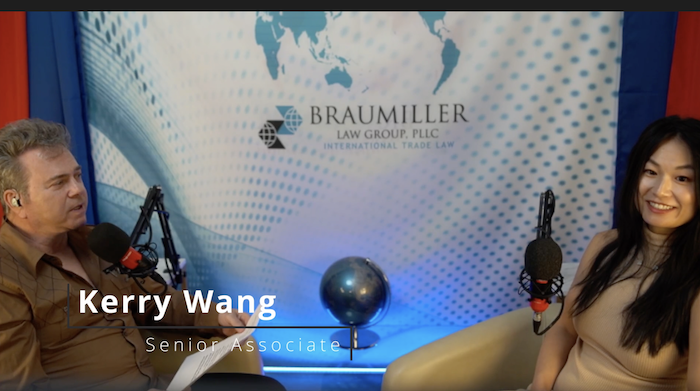
Senior Associate Attorney at Braumiller Law Group Kerry Wang sits down with Bob Brewer to discuss trade including the current administrations use of section 232.
Can BRICS Break the Dollar’s Grip?

For decades, the U.S. dollar has ruled the world. Whether a Brazilian farmer sells soybeans to China or an Indian company buys oil from the Middle East, chances are the transaction runs through greenbacks. Nearly 80 percent of global trade is still denominated in dollars—even when neither the buyer nor the seller is American.
China’s Global Port Investments – It’s About Control and the Reshaping of Trade Flows
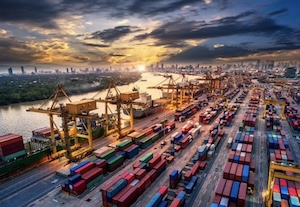
China owns outright or has majority control in 17 overseas ports globally, according to recent estimates. However, its broader footprint is much larger with 129 port projects worldwide that involve Chinese investment, construction, or operational control. 115 of these are active, spanning every continent except Antarctica, which is next.
